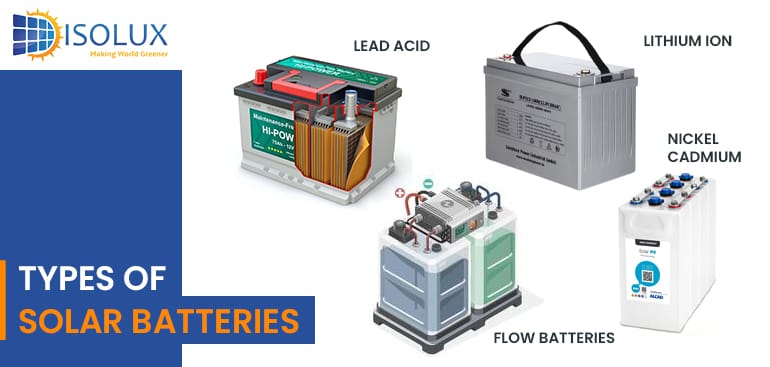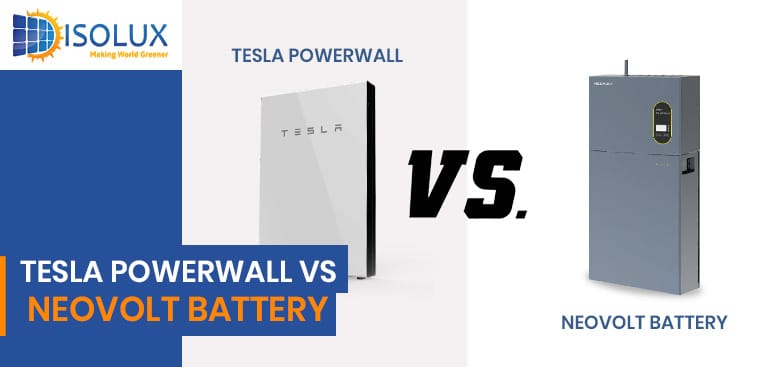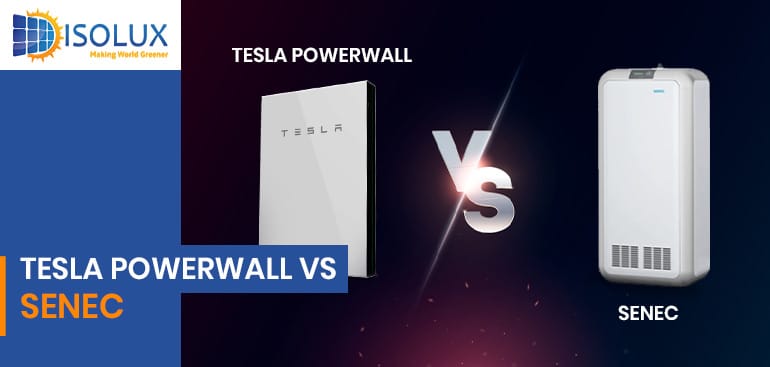With the growing adoption of solar energy in Australia, choosing the right solar battery is crucial for maximizing energy efficiency and cost savings. Solar batteries store excess solar power for later use, reducing reliance on the grid and enhancing energy independence. Let’s explore different types of solar batteries, their advantages, and which one is best suited for Australian households and businesses.
Why Do You Need a Solar Battery?
Solar batteries offer numerous benefits, including:
Energy Independence – Store excess solar energy and use it when needed, reducing dependence on the grid.
Lower Electricity Bills – Utilize stored solar energy during peak hours when electricity prices are high.
Backup Power – Ensure power supply during grid outages.
Increased Solar Utilization – Prevent excess solar power from being wasted.
Types of Solar Batteries
1. Lithium-Ion Batteries
Lithium-ion batteries are the most popular choice for solar storage due to their high efficiency, longevity, and lightweight design. They are widely used in residential and commercial solar installations.
Advantages:
- High Efficiency – Over 90% efficiency in energy conversion.
- Long Lifespan – Typically lasts 10-15 years.
- Compact and Lightweight – Easy to install and space-efficient.
- Low Maintenance – Requires minimal upkeep compared to other battery types.
Disadvantages:
- Higher Cost – More expensive upfront than other battery types.
- Thermal Runaway Risk – Potential overheating if not managed properly.
2. Lead-Acid Batteries
Lead-acid batteries have been used for decades in solar storage systems. They are a cost-effective option but have a shorter lifespan and lower efficiency than lithium-ion batteries.
Advantages:
- Lower Initial Cost – More affordable than lithium-ion batteries.
- Proven Technology – Reliable and widely used for solar storage.
- Easier Recycling – More developed recycling infrastructure.
Disadvantages:
- Shorter Lifespan – Typically lasts 3-5 years.
- Lower Efficiency – Around 70-80% energy efficiency.
- Bulky and Heavy – Requires more space for installation.
- High Maintenance – Needs regular maintenance and water refilling for flooded lead-acid batteries.
3. Flow Batteries
Flow batteries use a liquid electrolyte to store and release energy. They are suitable for large-scale energy storage applications.
Advantages:
- Scalability – Can be expanded easily by increasing electrolyte volume.
- Long Lifespan – Can last over 20 years with proper maintenance.
- Deep Discharge Capability – Allows for 100% depth of discharge without significant degradation.
Disadvantages:
- High Initial Cost – Expensive compared to lithium-ion and lead-acid batteries.
- Bulky Design – Requires a large installation area.
- Limited Residential Use – More suitable for commercial and industrial applications.
4. Nickel-Iron (Ni-Fe) Batteries
Nickel-Iron batteries are known for their extreme durability and long lifespan. They are highly resistant to harsh environmental conditions.
Advantages:
- Extremely Long Lifespan – Can last up to 40 years.
- Resistant to Overcharging – Can handle frequent charge cycles without degradation.
- Tolerant to Extreme Temperatures – Ideal for harsh Australian climates.
Disadvantages:
- Lower Efficiency – Only around 60-70% efficiency.
- High Self-Discharge Rate – Loses charge faster than other battery types.
- Expensive – High upfront cost.
How to Choose the Right Solar Battery for Your Home or Business?
When selecting a solar battery, consider the following factors:
- Capacity & Power Rating – Ensure the battery meets your energy storage needs.
- Depth of Discharge (DoD) – Higher DoD allows more usable energy.
- Efficiency – Higher efficiency means better energy savings.
- Lifespan & Warranty – Opt for a battery with a longer lifespan and a strong warranty.
- Upfront Cost vs. Long-Term Savings – Balance initial investment with future savings.
Best Solar Batteries Available in Australia
Some of the top solar battery brands available in Australia include:
Tesla Powerwall 2 – High efficiency, scalable, and widely used.
SonnenBatterie – German-engineered battery with excellent performance.
LG Chem RESU – Reliable and compact lithium-ion battery.
Enphase IQ Battery – Modular design with enhanced safety features.
BYD Battery Box – Highly scalable and suitable for residential and commercial applications.
Conclusion
Choosing the right solar battery depends on your energy needs, budget, and long-term sustainability goals. Lithium-ion batteries are the most popular due to their efficiency and longevity, while lead-acid batteries remain an affordable choice. For those seeking extended durability, flow and nickel-iron batteries offer excellent long-term benefits.
If you’re looking for expert advice on solar battery installation in Sydney, Perth, or Brisbane, Isolux Solar can help you choose the best system for your needs. Contact us today for a consultation and start your journey towards energy independence! Isolux Solar is a leading solar panel installer in Sydney, Perth, and Brisbane, offering high-quality solar battery storage solutions tailored to Australian homes and businesses.




